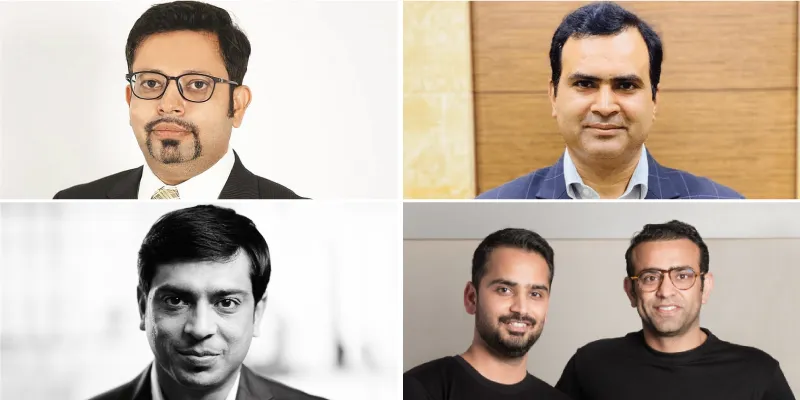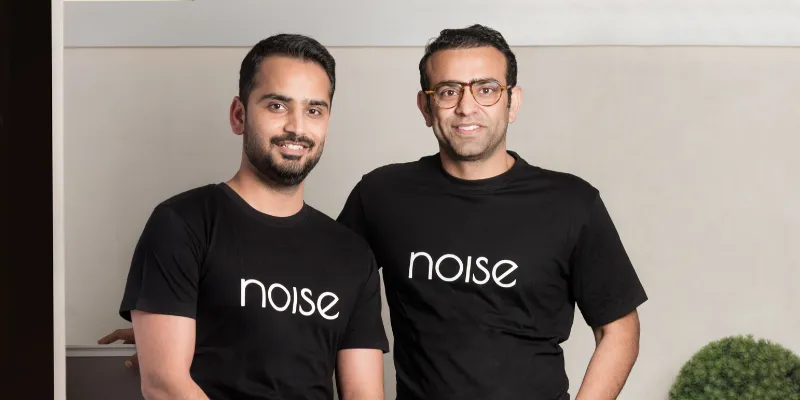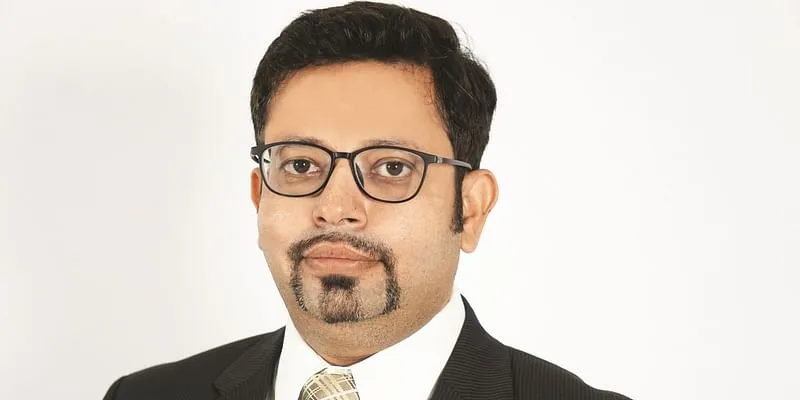How these 4 Indian smartphone accessory and service brands became popular and are now earning in crores
Here are stories of Indian brands that are making the most of India’s smartphone accessories market, which is anticipated to grow at a CAGR of 10.5 percent from 2017 to 2024.

Over the past few years, the smartphone market in India has grown on the back of price cuts, EMI offers, popular ecommerce sales, etc. It grew four percent year-on-year in the first quarter of 2020 to over 31 million units sold, according to Counterpoint Research.
Alongside this growth, the smartphone accessories and services market has flourished. Brands making protective cases, chargers, headsets, batteries, memory cards, power banks, portable speakers etc and providing after-sales services are becoming more popular by the day and are earning crores in revenue.
They are making the most of India’s mobile phone accessories market, which is anticipated to grow at a CAGR of 10.5 percent from 2017 to 2024, according to a Research Nester report.
Despite a 19 percent decline in smartphone sales in March due to the coronavirus pandemic, demand for smartphones and related accessories are poised to pick up in the second and third quarters of 2020.
With the smartphone industry in India set for a revival, SMBStory lists four smartphone accessories and service brands that are carving a niche for themselves in the industry.
Ambrane

Ashok Rajpal, Founder and Managing Director, Ambrane
In 2001, Ashok Rajpal (39) was in the textile business in which he spent eleven years, before he witnessed the tech industry boom. Noticing a huge growth potential in the demand for peripheral devices, he decided to venture into this nascent industry, though he had no knowledge of it.
Teaming up with his brother, Sanjay Rajpal (36), who already had a small peripheral devices shop at Nehru Place in New Delhi, Ashok began his journey as a retailer of mobile accessories.
Capitalising on a first-mover advantage, the duo founded Ambrane in 2012 with an investment of Rs 10 lakh from their personal savings. When Ashok entered the business of manufacturing and retailing power banks, the smartphone industry was burgeoning, and he saw an untapped opportunity in the power bank segment.
He notes that, back then, the concept of power banks was still alien to India, though the product had gained popularity in China and Japan, besides other countries. “In 2014, we set up our manufacturing unit in Kundli, near Sonipat in Haryana, and began manufacturing power banks,” says Ashok.
He adds that theirs was one of the first brands to adopt the ‘Make in India’ ethos, long before the movement officially began. After the launch of its power banks, there has been no looking back for them.
Today, Ambrane manufactures and sells other mobile accessories and audio products too. Its wide range includes speakers, chargers, and rugged cables, apart from power banks. The company has a 10-million customer base and records a turnover of Rs 103 cr.
Noise

Noise founders Gaurav Khatri (left) and Amit Khatri (right)
Not long after Gaurav Khatri completed his commercial pilot training in the Philippines, he decided he wanted to become an entrepreneur instead. The year was 2014 - when the consumer electronics segments for smartphones, smartphone cases, Bluetooth earphones, etc was exploding on and Amazon India.
“There was an opportunity to invest in the smartphone cases and covers segment, and it seemed like a good bet. When I expressed interest in this, my cousin Amit reached out to me,” Gaurav says.
Although cousins Gaurav and Amit did not grow up together, they closely interacted with each other during their youth, and felt there would be synergy in starting a business together.
They invested their savings of Rs 7.18 crore ($1 million) to start in 2014. Gaurav and Amit tied up with Chinese manufacturers to make smartphone covers, and sold them in India. Gaurav claims Noise became one of the best sellers in the mobile accessory category in the first few years.
They had also begun research into smart wearables and Bluetooth earphones, and were looking to include these products in their portfolio. By 2018, Noise launched both products. The strategy was to sell good quality smart wearables and Bluetooth earphones that were high on features at a value-for-money price.
Noise worked alongside its exclusive and large-scale original design manufacturers (ODMs) in China to bring down the cost of production. It worked with Chinese factories that boasted of huge production capacities, efficient raw material procurement processes, and stringent quality checks. Today, these co-founders are able to clock a GMV of Rs 25 crore per month.
pTron

Ameen Khwaja, Founder & CEO, pTron
Hailing from a decades-old, well-established family business, Ameen Khwaja is an electrical engineer by profession, who made the best of opportunities that came his way. In an interaction with SMBStory, he says, “I completed my graduation from the University of East London and while I was studying there, I freelanced for around 70 bread and breakfast hotels near Buckingham Palace to develop their websites.”
In 2005, Ameen returned to India and in 2015 he built his own ecommerce website latestone.com to sell smartphone accessories. Initially, Ameen imported products from China and sold through his ecommerce portal. However, soon he saw a huge gap in the smartphone mobile accessories market in India.
In 2015, Ameen launched pTron, a brand conceptualised for consumer electronics and mobile accessories. The brand offers various consumer electronic products such as Bluetooth headsets, TWS products, smartwatches, portable Bluetooth speakers, and networking products, among others. pTron clocked Rs 25 crore last quarter.
Challenges and tough competition didn’t hamper Ameen’s vision nor did the unprecedented times of COVID-19. With the pandemic hitting businesses hard, pTron’s sale went to zero for two months.
Ameen decided to switch partial manufacturing to India in a move to become self-sustainable. He says, “We decided to manufacture our fastest selling wireless headsets in India. Though the custom cost has increased from 12 to 15 percent, it is high time to become self-reliant.”
Servify

Sreevathsa Prabhakar, Founder, Servify
The customer service and support industry in India appears unable to keep up with the number of smartphone units being sold. Smartphone brands often operate in silos to provide after-sales service, despite smartphones becoming more modular.
For the most part, there is a lack of an institution or framework on which customers could receive support, irrespective of the brand of smartphone they have.
Noticing this void in the mid-2000s, serial entrepreneur Sreevathsa Prabhakar (43) set out on a journey to provide end-to-end device life cycle management to not only smartphone makers but also other consumer electronics brands.
In 2015, Prabhakar launched , an app-based customer support service channel for consumer electronics. In three years, it has created a complete service life cycle management platform, enabling top electronics and smartphone brands, carriers and retailers in device diagnostics with distribution, sales, warranty management, after-sales service, end of life management, and ecommerce capabilities.
“When I set out to build Servify, I knew it was an uphill task. The after-sales service and support industry was almost broken. Processes and people operated in silos more than they should. Brands were spending more money to keep the customer happy,” says Sreevathsa Prabhakar, Founder, Servify.
Today, Servify is operational in North America, Europe, Middle East, China and Turkey, among others, through partnerships with OEMs, retailers and distributors. It claims Apple, Samsung, Amazon, OnePlus, AmTrust, Xiaomi, Croma, Godrej, Motorola/Lenovo, Nokia, OPPO, and Reliance Retail have partnered with it in various capacities. It also claims to cater to over three million monthly transactions on its platform.
Edited by Javed Gaihlot







